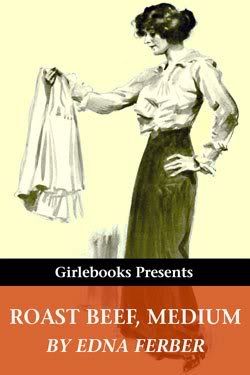Original Publication Date: 1623
Earliest Known Performance: 1611
Genre: play, tragedy
Topics: free will, leadership, ambition, war, human nature
Genre: play, tragedy
Topics: free will, leadership, ambition, war, human nature
(image by brekkers)
Review:
Review:
How exactly do you “review” Macbeth? Especially if it’s only the second Shakespeare play you’ve ever read? Surely every original thought about it must have already been published, built-upon, attacked and defended.
Now that I’ve read it, I can finally understand the fuss. If you just want a good story you’ll take great pleasure in the spooky atmosphere and the bloody scenes, if you’re a philosopher you can revel in the Grand Issues like free will, ambition and leadership and if you’re a language buff there’s lots of passages to underline.
Just like with A Midsummer’s Night Dream, I took great pleasure in the words, even though they were more archaic and harder to follow (it’s after all a historical play, set in the 11th century). Here are some great examples, the kind you want to memorize and use to impress people at parties:
Where the Norweyan banners flout the skyAnd fan our people coldI have begun to plant thee, and will laborTo make thee full of growingStart, hide your fires!Let not light see my black and deep desiresInfected mindsTo their deaf pillows will discharge their secrets
Macbeth is the story of a great and respected warrior that once upon a time comes across three witches that give him a vision of the future: he will be King! Macbeth believes them and starts making sure that history bends to this prophecy. Thus begins a bloody chain of events, which starts with regicide, but certainly doesn’t end there.
It’s so spooky that it became a sort of theater-Voldemort: in the acting business it’s only referred to as “the Scottish play”, never by its name, which is said to be CURSED *cue high-pitched violins*.
(credits: Kate Beaton at Hark, a Vagrant!)
The play also has the potential to sparkle great conversations, the type I remember having with friends after watching Donny Darko: would have Macbeth been King, if he didn’t take matters in his own hands? Why didn’t he just sit and wait for the crown to fall on his lap? Was the prophecy just an excuse to bring out everything that was mad and evil in him? What about the Lady Macbeth, another Eve figure, that tempts her man into sin?
Lady Macbeth is an interesting one. She’d also like to be Queen, but knows she doesn’t have the cold blood that’s needed to kill those in her path. And she’s right, because shortly after helping to cover Macbeth’s crime, she rapidly descends into madness and commits suicide. Her power lies in influencing her husband, but even that was too much for her. Still, Lady Macbeth has the best speeches, my favorite being the creepy scene where she asks the spirits to maker stronger, colder… and less womanly:
Come, you spiritsThat tend on mortal thoughts! unsex me here,And fill me from the crown to the toe top fullOf direst cruelty; make thick my blood,Stop up the access and passage to remorse,That no compunctious visitings of natureShake my fell purpose, nor keep peace betweenThe effect and it!
As Macbeth himself becomes insane and more brutal, his speeches also become more frantic, and even more spectacular:
I have almost forgot the taste of fears:The time has been, my senses would have cool’dTo hear a night-shriek
There weren’t as many insults as in Midsummer’s Night Dream (only “rump-fed ronyon”, “shag-haar’d villain” and “lily-liver’d boy”), but there were many little expressions that I immediately recognize. It was such a great experience to think “So that’s where it comes from!” Examples:
that shalt be king hereafter
“King Hereafter” is the name of a novel by Dorothy Dunnett, about the life of the Scottish King that lightly influenced Macbeth’s story.
To wear a heart so white
The weird sisters, hand in hand
Something wicked this way comes
One last thought (and a question): I thought it was very cleaver the way Shakespeare made the prophecy make sense. It’s certainly the same level as most Hollywood twists. Was he the first one to use a “literary quibble“?
Macbeth, as well as all other plays by Shakespeare, is available on Project Gutenberg and on LibriVox (in audio).
This post was also published at The Sleepless Reader.










